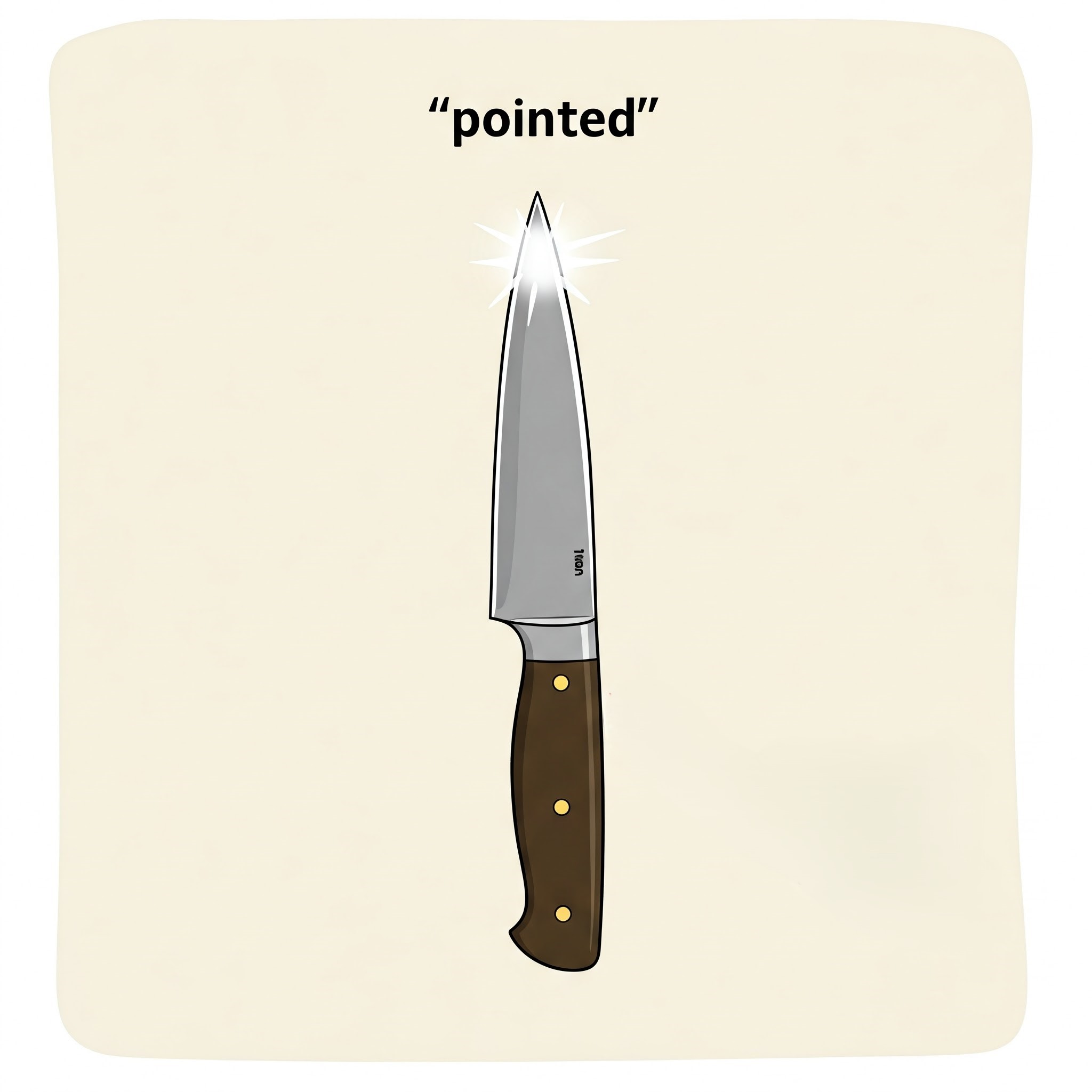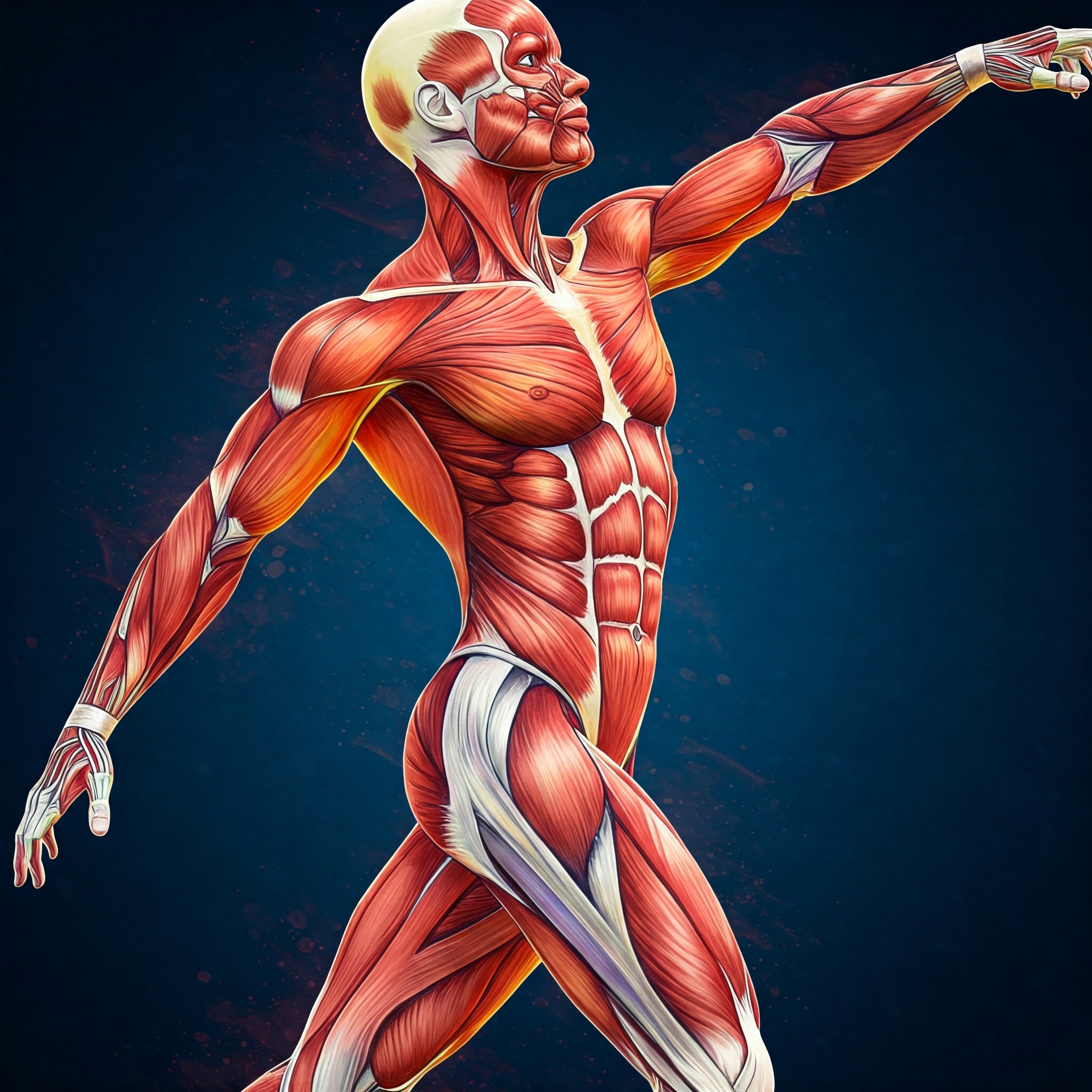Stiff
Definition
Stiff describes something that is rigid, not easily bent or moved, or resistant to change. It can also refer to a formal or awkward demeanor.
Parts of Speech
- Adjective
- Noun
- Adverb
Pronunciation
American English
- IPA Pronunciation: /stɪf/
- Respelling: STIF
British English
- IPA Pronunciation: /stɪf/
- Respelling: STIF
Etymology
The word "stiff" originates from Old English "stif," meaning "rigid, strong, or obstinate." It is related to Proto-Germanic "*stifaz" and Old Norse "stifla," meaning "to stiffen or block."
Derivatives
- Stiffness (noun)
- Stiffen (verb)
- Stiffly (adverb)
- Stiffener (noun)
- Stiffened (adjective)
Synonyms
- Rigid
- Firm
- Inflexible
Antonyms
- Flexible
- Soft
- Supple
Usage
The word "stiff" is used in a variety of contexts, from describing physical rigidity ("The cardboard was stiff and hard to fold") to formality or awkwardness ("He gave a stiff response during the meeting").
Related Terms
- Rigidity: The quality of being stiff or inflexible.
- Firmness: The condition of being solid or stable.
- Tension: The state of being stretched or tight.
Detailed Definitions
Adjective
- Rigid or not flexible: Describes something that is difficult to bend or move.
- Example: "The material is too stiff to work with."
- Formal or awkward in manner: Refers to a lack of ease in behavior or movement.
- Example: "His stiff demeanor made the conversation uncomfortable."
- Severe or difficult: Describes a challenging situation or punishment.
- Example: "The team faced stiff competition in the finals."
Noun
- A corpse (slang): Informal usage to refer to a dead body.
- Example: "The detective found a stiff in the alley."
- A formal or inflexible person: Used to describe someone lacking ease or relaxation.
- Example: "He’s such a stiff at parties."
Adverb
- In a rigid or firm manner: Describes how something is done with firmness or inflexibility.
- Example: "He stood stiff with fear."
stiff



🇨🇳 Mandarin (Chinese)
- 僵硬 (jiāng yìng) – stiff (not easily bending)
- IPA Pronunciation: /tɕjɑŋ iŋ/
- English Respelling: jyang ying
- 冷淡 (lěng dàn) – stiff (inexpressive)
- IPA Pronunciation: /ləŋ dan/
- English Respelling: leng dan
🇮🇳 Hindi
- कठोर (kaṭhor) – stiff (not easily bending)
- IPA Pronunciation: /kəʈhoːr/
- English Respelling: kat-hor
- अभिव्यक्तिहीन (abhivyaktihin) – stiff (inexpressive)
- IPA Pronunciation: /əbɦɪvjəkt̪ɪhin/
- English Respelling: abhi-vyakti-heen
🇪🇸 Spanish
- Rígido – stiff (not easily bending)
- IPA Pronunciation: /ˈri.xi.ðo/
- English Respelling: ri-xi-do
- Serio – stiff (inexpressive)
- IPA Pronunciation: /ˈse.ɾjo/
- English Respelling: se-ryo
🇫🇷 French
- Raide – stiff (not easily bending)
- IPA Pronunciation: /ʁɛd/
- English Respelling: red
- Froid – stiff (inexpressive)
- IPA Pronunciation: /fʁwa/
- English Respelling: frwa
🇸🇦 Modern Standard Arabic
- صلب (sulb) – stiff (not easily bending)
- IPA Pronunciation: /sʊlb/
- English Respelling: sulb
- بارد (baared) – stiff (inexpressive)
- IPA Pronunciation: /baːred/
- English Respelling: ba-ared
🇧🇩 Bengali
- শক্ত (shokto) – stiff (not easily bending)
- IPA Pronunciation: /ʃɔkt̪ɔ/
- English Respelling: sho-kto
- অভিব্যক্তিহীন (obhibyaktihiin) – stiff (inexpressive)
- IPA Pronunciation: /obhibʲɔkt̪iɦin/
- English Respelling: obhi-byakti-heen
🇷🇺 Russian
- Жёсткий (Zhyostkiy) – stiff (not easily bending)
- IPA Pronunciation: /ʐɵstkʲɪj/
- English Respelling: zhyost-kiy
- Невыразительный (Nevyrazitel'nyy) – stiff (inexpressive)
- IPA Pronunciation: /nʲɪvrɐˈzʲitʲɪlʲnɨj/
- English Respelling: ne-vyra-zi-tel'-nyy
🇵🇹 Portuguese
- Rígido – stiff (not easily bending)
- IPA Pronunciation: /ˈʁi.ʒi.du/
- English Respelling: ri-zhi-du
- Sério – stiff (inexpressive)
- IPA Pronunciation: /ˈsɛ.ɾju/
- English Respelling: se-ryu
🇮🇩 Indonesian
- Kaku – stiff (not easily bending)
- IPA Pronunciation: /'kaku/
- English Respelling: ka-ku
- Dingin – stiff (inexpressive)
- IPA Pronunciation: /diŋ'in/
- English Respelling: ding-in
🇩🇪 German
- Steif – stiff (not easily bending)
- IPA Pronunciation: /ʃtaɪf/
- English Respelling: shtaif
- Ernst – stiff (inexpressive)
- IPA Pronunciation: /ɛʁnst/
- English Respelling: ernst
🇯🇵 Japanese
- 堅い (Katai) – stiff (not easily bending)
- IPA Pronunciation: /ka.ta.i/
- English Respelling: ka-ta-i
- 無表情 (Muhyōjō) – stiff (inexpressive)
- IPA Pronunciation: /mu.hjoː.dʑoː/
- English Respelling: mu-hyo-jo
🇻🇳 Vietnamese
- Cứng – stiff (not easily bending)
- IPA Pronunciation: /kɨŋ˧˩/
- English Respelling: king
- Lạnh – stiff (inexpressive)
- IPA Pronunciation: /laːŋ˧˧/
- English Respelling: lahng
🇰🇷 Korean
- 딱딱한 (Ttak ttakhan) – stiff (not easily bending)
- IPA Pronunciation: /t͈ak̚ t͈ak̚.han̚/
- English Respelling: ttak-ttak-han
- 무표정한 (Mupyujeonghan) – stiff (inexpressive)
- IPA Pronunciation: /mu.pju.dʑʌŋ.han̚/
- English Respelling: mu-pyu-jeong-han
🇹🇷 Turkish
- Sert – stiff (not easily bending)
- IPA Pronunciation: /sæɾt/
- English Respelling: sert
- İfade etmez – stiff (inexpressive)
- IPA Pronunciation: /ifade etmez/
- English Respelling: i-fa-de et-mez
🇵🇰 Urdu
- سخت (sakht) – stiff (not easily bending)
- IPA Pronunciation: /səxt/
- English Respelling: sakht
- بے اظہار (be izhar) – stiff (inexpressive)
- IPA Pronunciation: /be ɪzɦaːr/
- English Respelling: be iz-har





